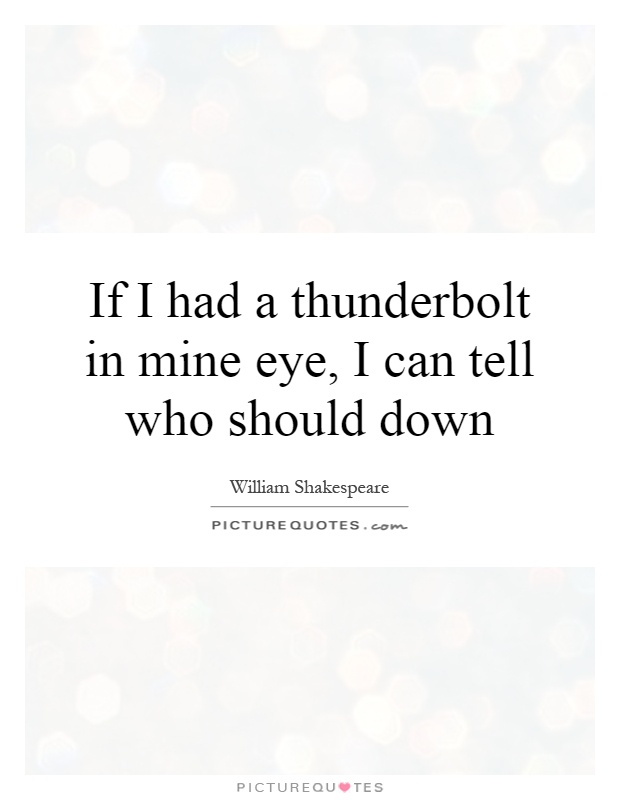If I had a thunderbolt in mine eye, I can tell who should down

If I had a thunderbolt in mine eye, I can tell who should down
The line "If I had a thunderbolt in mine eye, I can tell who should down" is from William Shakespeare's play "Julius Caesar." In this line, the character of Cassius is speaking to Brutus, trying to convince him to join the conspiracy to assassinate Caesar. Cassius is using vivid imagery to convey the power and authority that Brutus could have if he were to join their cause.The metaphor of a thunderbolt in the eye is a powerful one, suggesting that Brutus would have the ability to strike down their enemies with just a glance. It also implies that Brutus would have the foresight and insight to know who should be brought down in order to achieve their goals. This line is meant to appeal to Brutus's sense of duty and honor, as well as his desire to do what is best for Rome.
Shakespeare often used dramatic and poetic language to convey complex emotions and ideas in his plays. In this case, the line serves to highlight the tension and conflict within the characters as they grapple with the decision to betray Caesar. Cassius is trying to manipulate Brutus into joining the conspiracy by appealing to his sense of justice and righteousness.
The use of the thunderbolt imagery also serves to foreshadow the violent and tumultuous events that will unfold in the play. The assassination of Caesar will have far-reaching consequences for Rome, leading to civil war and political upheaval. The line serves as a reminder of the power and consequences of political ambition and betrayal.
Overall, the line "If I had a thunderbolt in mine eye, I can tell who should down" is a powerful and evocative expression of the themes of power, ambition, and betrayal that run throughout Shakespeare's works. It serves as a reminder of the complex and often tragic nature of human relationships and the consequences of our actions.












 Friendship Quotes
Friendship Quotes Love Quotes
Love Quotes Life Quotes
Life Quotes Funny Quotes
Funny Quotes Motivational Quotes
Motivational Quotes Inspirational Quotes
Inspirational Quotes